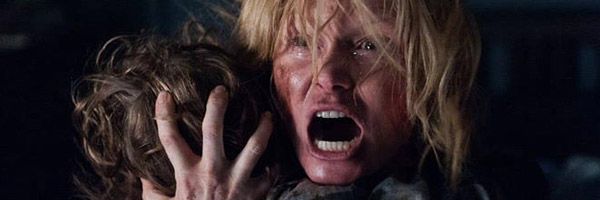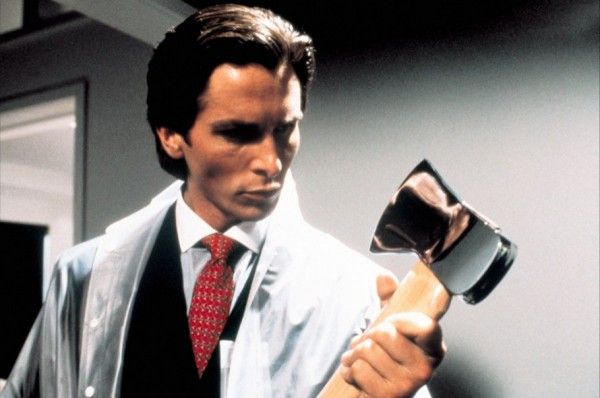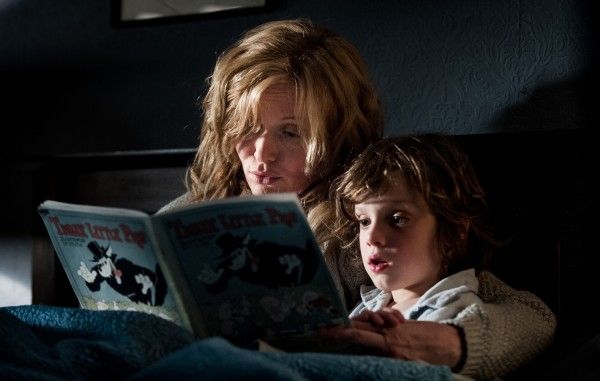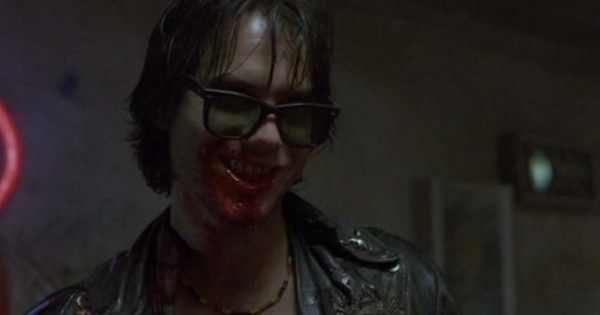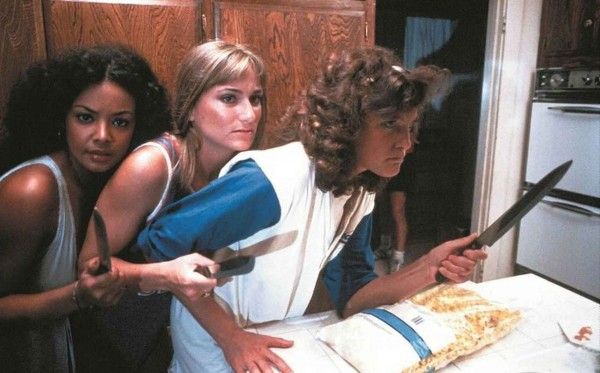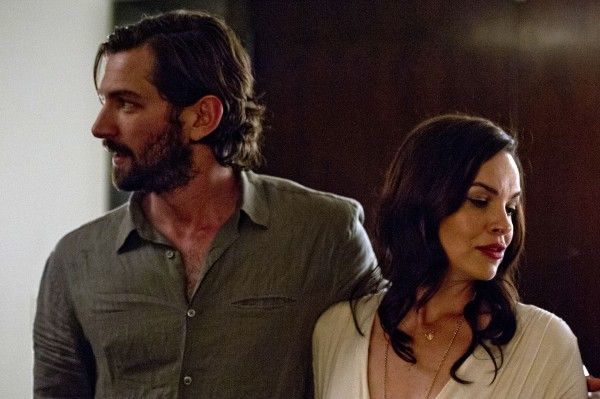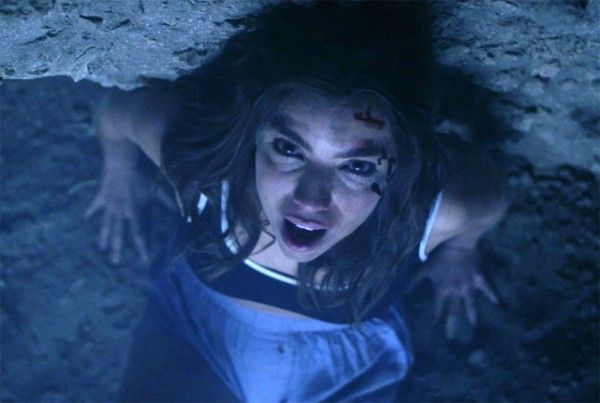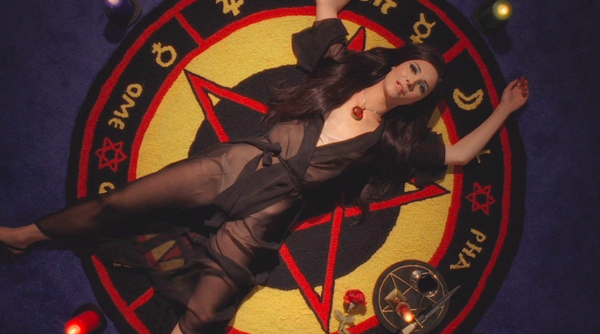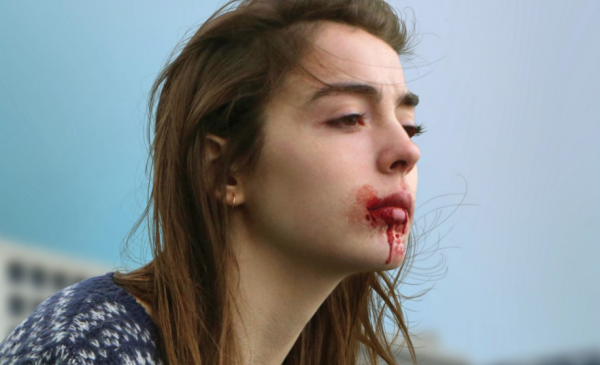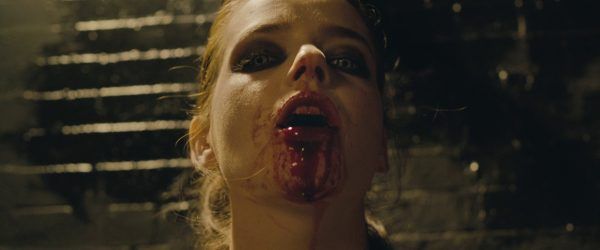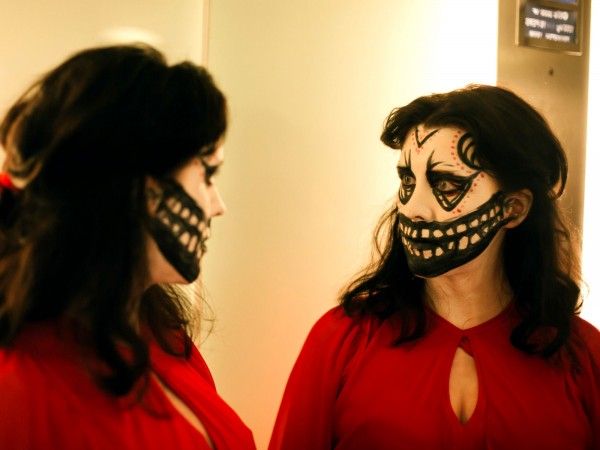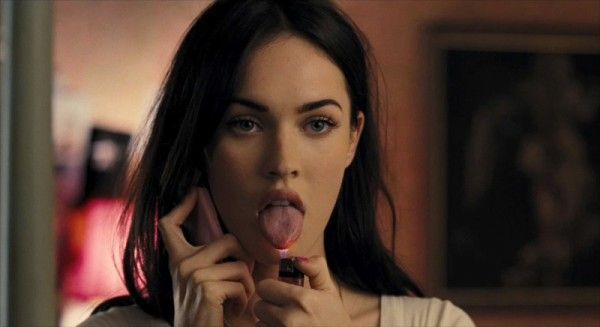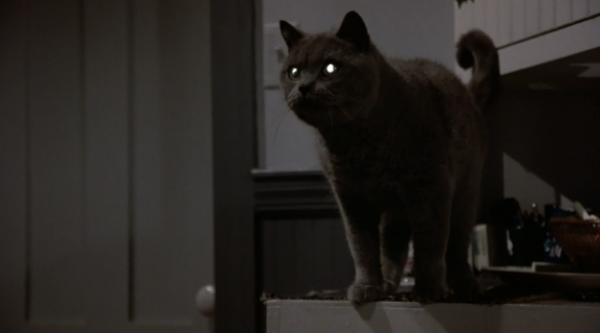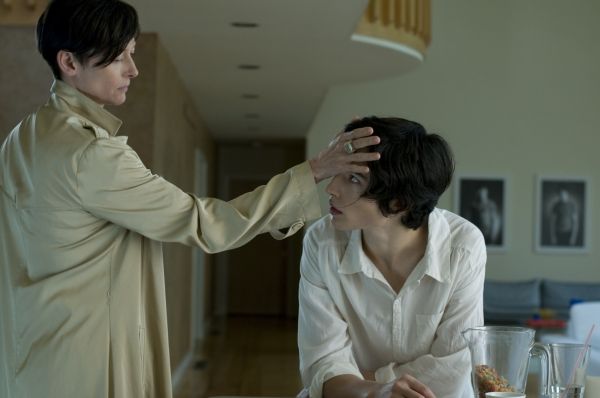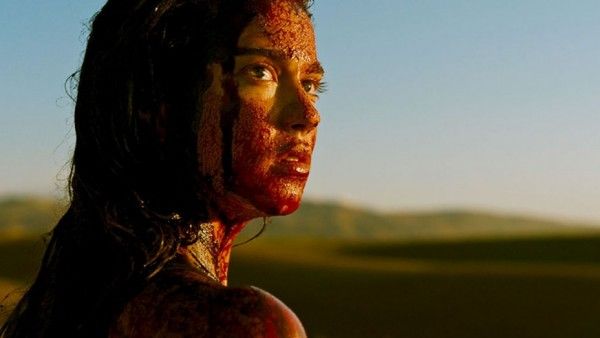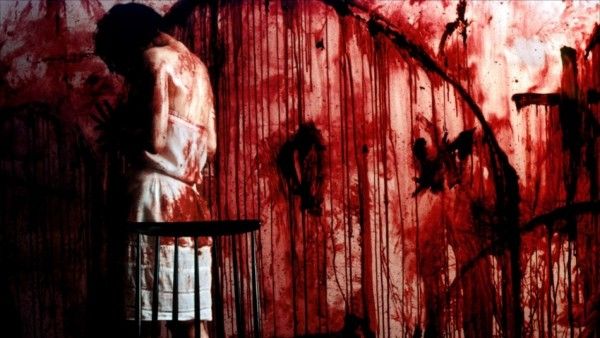As progressive as genre cinema has often sneakily been, both in the analyses of their texts and their opportunities for marginalized groups behind and in front of the camera, there is still a startling lack of female directors in horror filmmaking -- particularly for studio-funded horror films. And while we still have films like Nia DaCosta's Candyman remake to look forward to, there's much more progress to be made.
To help celebrate this corner of the genre -- and to keep on inspiring female horror filmmakers -- we’ve accrued a list of 15 of the best horror films directed by women. These films are terrifying, unique, often savage, and often incendiary -- essential entries into the genre canon. We’ve absolutely missed many essentials, but we hope this serves as a helpful tip of the iceberg when it comes to female genre directors. Here’s to 15 of the best horror movies directed by women -- and here’s to more opportunities for women behind the camera to come.
American Psycho
Director: Mary Harron
Writers: Mary Harron, Guinevere Turner
Cast: Christian Bale, Willem Dafoe, Jared Leto, Josh Lucas, Samantha Mathis, Matt Ross, Bill Sage, Chloë Sevigny, Cara Seymour, Justin Theroux, Guinevere Turner, Reese Witherspoon
How can such a nihilistic film be so friggin’ entertaining? American Psycho, the queasy 2000 horror-satire from director Mary Harron and star Christian Bale, continues to successfully punctuate its pervasive sense of pitch-black humor with shocking disruptions of surreal violence upon contemporary viewing. American Psycho plows through the hornet's nest of “1980s American class warfare and rich assholery” from the vantage point of, well, the rich assholes -- and while the movie possesses little empathy for said assholes, it cannily dissects the shit out of them. Patrick Bateman (Bale) exists in a world of superficial, disposable, utterly useless masks. From his lavish skin care regimen to his robotically cheerful analyses of pop music, Bateman wears humanity like a flimsy slip tearing at the seams. To paraphrase the man himself, he simply is not there. Bateman’s only course of action in an inherently pointless world? Causing chaos and violence in the form of abrupt killings. His targets move with increasing desperation from peers (Jared Leto’s Paul Allen gets brutally axed in the film’s most iconic sequence) to those objectively below his social status (prostitutes and homeless people) -- only one person he intends on killing (Chloë Sevigny) escapes his wrath in a rare, inadvertent eruption of mercy, of admission to purity existing within a human. The film is based on a novel from Bret Easton Ellis -- upon its publishing in 1991, it was immediately controversial in its fetishistic descriptions of ultraviolence, painted as a vulgar anti-feminist screed. Harron and co-writer Guinevere Turner expertly circumvent these issues by keeping its violence, while disturbing, relatively contained, and by leaning in heavily to the material’s pointed satire, its criticism of, not celebration of, male consumerism. American Psycho’s conclusions about what this all means are, by design, pointless, perhaps existing only in the lurking terrors of male imaginations and subconscious. Somehow, this is a compliment, not a criticism, of Harron’s masterwork.
The Babadook
Director/Writer: Jennifer Kent
Cast: Essie Davis, Noah Wiseman, Hayley McElhinney, Daniel Henshall, Barbara West, Ben Winspear
No modern horror movie has fucked me up more thoroughly than The Babadook. Jennifer Kent’s exercise in unbearably sustained tension runs laps around other “contemporary prestige horror flicks that are mostly about family traumas” like Hereditary, saying so much with simple techniques and tactics. Essie Davis and Noah Wiseman give barnburners of performances, anchoring Kent’s script with a haunted portrayal of a mother and son attempting desperately to move past the trauma of losing a husband and a father abruptly. The performers’ eyes tell us everything we need to know about the story, shifting from open, aching vulnerability to focused attacking within the same scene. Their arguments, conflicts, and attempts to merely live drive much of The Babadook’s horrors; I could literally feel my nerves pinch and my guts tighten at the harried relatability of uneasy terror that comes when “a mom is more upset than normal at a child.” Oh, but, like, what about the titular monster? Yeah, the Babadook is pretty scary, too. Before he became an inadvertent LGBTQ+ icon thanks to a delightful Netflix boink-up, Mister Babadook was the center of a particularly morbid pop-up book, lensed in surprisingly sweeping pushes and moves by Kent and DP Radek Ładczuk (let them make a big-budget action blockbuster, please). And when that monster manages to escape the cages of his pages and lurk in the shadows of real-ass life, he scares the bejeezus out of us because of, not despite, Kent’s less-is-more aesthetics. She eschews jump scares and maximalist visions of carnage for shadows, homemade effects that fade in rather than peak, and a wholly unique vision that’s nonetheless in dialogue with silent horror, German expressionism, and maybe, like, if a Giallo film was desaturated and all the kills taken out and replaced with family members yelling at each other. It’s hard to think of a more satisfyingly upsetting modern film experience than The Babadook -- but then again, I haven’t seen Kent’s follow-up, The Nightingale, yet.
Near Dark
Director: Kathryn Bigelow
Writers: Eric Red, Kathryn Bigelow
Cast: Adrian Pasdar, Jenny Wright, Lance Henriksen, Bill Paxton, Jenette Goldstein, Tim Thomerson
To date, Kathryn Bigelow is the only woman to have won the Academy Award for Best Director, for 2009’s The Hurt Locker. In some ways, that film, a nail-biting examination of the horrific circumstances and paralyzing outcomes of searching for IEDs in the Iraq War, is a horror film, crackling with suspenseful set pieces and characters on the brink of psychosis. If you enjoy that film, and want another Bigelow-directed movie that’s also about “a found family dealing with horrifically stressful shit” but is explicitly in the genre space (though cross-pollinated enough to be more than meets the initial eye), check out Near Dark as soon as possible. Starring ‘80s genre vets like Adrian Pasdar (Top Gun), Lance Henriksen (Aliens), and the absolutely dominating Bill Paxton (The Terminator, Commando, Aliens, et al.), Near Dark is a postmodern vampire flick that has low-key influenced nearly every postmodern vampire flick in its wake, from From Dusk till Dawn to Twilight. When vampire Jenny Wright (Out of Bounds) bites the attractive human Pasdar, it sets off a chain of events within her vampire family. Should they kill him? Welcome him to the fold? How does this tale of star-crossed lovers impact the family’s general plans for consumption and carnage? Much of the film takes place in scuzzy, all-American locations like dive bars and RVs, giving it all a refreshingly blue collar take on what’s typically a higher-class genre of horror. These vampires, particularly the out-of-his-gourd Paxton, feel dirty, and Bigelow’s compositions (with DP Adam Greenberg) both heighten their lack of panache with lived-in imagery while simultaneously elevating them as new American myths. With Near Dark, Bigelow managed to make a wholly unique vampire, Western, and romance film, all with startling aesthetics and visceral violence. Sink your teeth into it posthaste.
The Slumber Party Massacre
Director: Amy Holden Jones
Writer: Rita Mae Brown
Cast: Michele Michaels, Robin Stille, Michael Villella, Debra Deliso, Andree Honore, Gina Mari
Like many pieces of horror schlock from the 1980s, The Slumber Party Massacre’s poster tells quite a story. Three scantily clad women cower in fear, positioned low, powerless, looking straight up at the figure of power: A killer with a drill pointing toward them, positioned strategically from his private parts. It’s the kind of image not uncommon in the world of 1980s slasher flicks, the kind of image that needs to be unpacked, the kind of image that advertises a film that is likely uninterested in doing that kind of purposeful unpacking. Is The Slumber Party Massacre, from director Amy Holden Jones, “that kind of film”? Thankfully, the answer is somewhere in the middle, resulting in a woozy sneak-attack Trojan horse of a watch. Yes, there are plenty of reliable “prurient Reagan era slasher flick” tropes for you to enjoy/sometimes wince at, from its phallic-on-purpose kills, to its punishment of women enjoying sex and drugs, to its “spying on women changing clothes” sequence. Heck -- the inherent premise and title of the picture buzzes with problematic ‘80s slasher delight. But under the hood, the engine tells a slightly different story. The original script by activist-turned-writer Rita Mae Brown (who also wrote the novel Rubyfruit Jungle, a seminal work in lesbian fiction) was entitled "Sleepless Nights," and was explicitly constructed to be a satire of slashers at the time. But when producers bought the script, they decided to make it as a straight slasher. As such, under the assured, self-aware direction of Jones, The Slumber Party Massacre plays within the space between parody and earnestness. It’s a horror film that’s somehow both campy and right down the middle, a beyond curious film with a beyond curious history that deserves more attention than it gets.
The Invitation
Director: Karyn Kusama
Writers: Phil Hay, Matt Manfredi
Cast: Logan Marshall-Green, Tammy Blanchard, Michiel Huisman, Emayatzy Corinealdi, Lindsay Burdge, Michelle Krusiec, Mike Doyle, Jay Larson, John Carroll Lynch
You ask me, the idea of going to any dinner party is terrifying enough without slapping any genre element on top of it. But wouldn’t you know it, director Karyn Kusama figured out how to make it worse. The Invitation is one of those gems that’s best experienced without knowing a single thing about it. It’s a sweater-tugger -- one that promises a loose thread that doesn’t quite fit right, and then unravels satisfyingly as the characters can’t help but keep tuggin’ away. Logan Marshall-Green (Upgrade) stars as Will, a quiet man who’s attending a dinner party held by his ex-wife (Tammy Blanchard) with his current girlfriend (Emayatzy Corinealdi). Awkward! But not quite as awkward as the lurid secret seeming to hide within the seams of the superficially nice social gathering. The Invitation follows in the footsteps of many other classic “just because you’re paranoid doesn’t mean they aren’t after you” psychological horror films, while carving its own “being an adult in modern day LA sucks” identity. If you’re only familiar with John Carroll Lynch as Frances McDormand’s loving husband in Fargo, he’s gonna surprise the heck out of you as our symbol of bloodcurdling discomfort. Kusama expertly uses his “gentle giant” persona for a signpost of evil, a classic “frogs don’t notice a pot gradually boiling” character. In general, Kusama is working with a more understated tone than previous efforts, with character decisions simply generating all of the juice, proving that her psychological acumen in genre cinema is second to none. I simply cannot reveal much more about the twisted details of The Invitation, but I will say this: The final shot will flabbergast you.
XX
Directors: Sofia Carrillo, Jovanka Vuckovic, Annie Clark, Roxanne Benjamin, Karyn Kusama
Writers: Jovanka Vuckovic, Jack Ketchum, Roxanne Benjamin, Annie Clark, Karyn Kusama
Cast: Natalie Brown, Melanie Lynskey, Breeda Wool, Christina Kirk
Here’s a delightful thing about the contemporary horror space: Anthologies are back, baby! From features like V/H/S and The ABCs of Death, to TV revivals like The Twilight Zone and Creepshow, we’re in a neo-Golden Age of giving horror filmmakers a chance to explore one idea for a brief moment before getting the heck outta there. Of all these spookily segmented projects, one stands above the rest for its makeup behind the camera: XX, a horror anthology film with all-women directors (named cannily after the two chromosomes possessed by cisgendered women). More than other anthologies I’ve seen, XX dares to be different by allowing its segments to explore vastly different subgenres and tones within the horror space. Jovanka Vuckovic adapts influential horror novelist Jack Ketchum’s short story “The Box” into a story equal parts Twilight Zone-esque moral psychological thriller and David Cronenberg-esque body horror (I hope that little kid’s okay!). Annie Clark (aka friggin’ alt-rock superstar St. Vincent) directs “The Birthday Party’s “hide the body from the kid” shenanigans with brightly colored, grimly hilarious finesse. Roxanne Benjamin’s “Don’t Fall,” about a group of friends on a coed camping trip, features some of the gnarliest, most surreal creature design I’ve ever seen in a movie. Karyn Kusama’s “Her Only Living Son” unravels a disquieting underbelly at the center of normal seeming suburbia while explicitly dialoguing with movies like The Omen and Rosemary’s Baby -- and films some disgusting gore effects to boot! And finally, framing all of this: delirious stop-motion animation from Sofia Carrillo, whose creations drip with -- and I sincerely mean this as a compliment -- “edgy 2000s Marilyn Manson/Hot Topic aesthetics.” Somehow, by eschewing any sense of “consistency” within its framing device or thematic purview, XX winds up being perhaps our most consistent contemporary anthology film.
The Love Witch
Director/Writer: Anna Biller
Cast: Samantha Robinson, Gian Keys, Laura Waddell, Jeffrey Vincent Parise, Jared Sanford, Robert Seeley, Jennifer Ingrum
You know what I love? I love a horror film that makes you feel “good” during and after. So much modern horror predicates on exploiting humanity’s inherent cynicism and misery. It’s downright refreshing to see a film so interested in campy joy, so earnset about everything it’s exploring, so infectiously styled to film nerd perfection -- while simultaneously interrogating many of the problematic building blocks of such cinema landmarks. The Love Witch is a labor of love from writer/director/composer/editor Anna Biller, and she makes every frame of this thing count. Folks like Christopher Nolan and Quentin Tarantino get all the press for the necessity of shooting on film, but Biller deserves just as much credit, having not only shot on 35mm film (with the masterful M. David Mullen as DP) but edited on a 35mm original negative, something nearly always eschewed in favor of digital editing these days, even when something is shot on film. Biller’s sets, color schemes, and production design all radiate in their delicious retro luxuriousness (try pairing this with Down with Love for a fun meta-retro double feature!). Her cast is uniformly down to clown, with Samantha Robinson absolutely annihilating the title role with screen presence and charm for days. She plays Elaine, who is indeed a literal love witch -- a mysterious, supernatural force who concocts spells and potions in order to make various men fall in love with her. Now, this may sound like a frothy premise -- and in many ways it is, in the best way possible. But after you sip past that initial, delicious froth, you’ll find an engagingly rich taste in the center. In so much horror, particularly of the era The Love Witch purposefully evokes, women are framed as powerless victims of male aggression. In Biller’s work, the script is flipped. Elaine, despite her daffy endearments (which eventually shift into something darker), is so literally in charge of the men that they’re put under her spell. And the men in the film are nearly uniformly powerless goofballs who recoil vividly at any expression of femininity. The Love Witch is one helluva movie. It will put you under a unique spell, one you’ll wish more filmmakers had the courage to cast.
Raw
Director/Writer: Julia Ducournau
Cast: Garance Marillier, Ella Rumpf, Laurent Lucas
Raw is a powerhouse directorial debut for Julia Ducournau that announces the french filmmaker as a force to be reckoned with in the genre. Set in the sterile, clinical walls of a veterinarian school, Raw tackles the primal and the grisly through the story of a young woman who discovers who she really is and what she really wants when she’s kicked out of the nest and sent to college. Justine’s (Garance Millier) is shipping off to the veterinarian school that both her parents attended and her rowdy older it sister is currently enrolled, and with her first taste of adulthood comes a new taste for flesh when a bloody hazing ritual forces her to consume a raw rabbit kidney. Using cannibalistic cravings as an allegory for the pangs of sexual awakening, Raw is one of the very best in the monstrous coming-of-age horror movies (alongside spiritual sibling films like Teeth, Ginger Snaps, and Wildling) and Ducournau is a wise enough filmmaker to match every moment of carnal carnage with quiet, intimate revelations. And oh, there is plenty of carnage, from horse dissections to Brazilian wax gone wrong that’s so tense you’ll hold your breath till you see stars, and yes, a lot of people-eating. Raw is one of the best horror films of the last decade, a knockout work from Ducournau that transforms the universal into a piercingly specific nightmare. -- Haleigh Foutch
Kiss of the Damned
Director/Writer: Xan Cassavetes
Cast: Josephine de La Baume, Milo Ventimiglia, Roxane Mesquida, Michael Rapaport, Riley Keough, Ching Valdes-Aran, Anna Mouglalis
Kiss of the Damned is a gorgeous movie and it’s absolutely criminal that Xan Cassavettes hasn’t directed another film since her 2013 feature debut. Joséphine de La Baume stars as Djuna, a vampire living the quiet life until she meets a handsome young man she can’t resist (Milo Ventimiglia) and her toxic sister comes crashing back into town and turns everything upside down. Channeling Euro-horror of the 70s with a stunning eye for the shot and a true command of eroticism. Cassavettes creates palpable tension and desire by tapping into the lure of the forbidden, the dangerous, and the destructive. Kiss of the Damned is flawed for sure, but it’s a hell of a striking directorial debut that hums along with crackling sensuality and some standout moments that tap into the existential angst of immortality. – Haleigh Foutch
Prevenge
Director/Writer: Alice Lowe
Cast: Alice Lowe, Kate Dickie, Kayvan Novak, Jo Hartley, Gemma Whelan, Tom Davis, Dan Renton Skinner, Mike Wozniak, Tom Meeten
There’s something inherently spooky about the way pregnancy challenges the authority over one’s own body, and while there have been plenty of horror films that tap into the grislier side of baby-making gone wrong, few have drilled down on the matters of identity and autonomy as well as Alice Lowe’s Prevenge. The English actress is best known for writing and starring in Ben Wheatley’s Sightseers and here, she writes, stars and makes her directorial debut as a seven-months-pregnant woman who believes her unborn baby is commanding her on a murderous rampage. Prevenge delivers some gruesome moments of slasher carnage, but its greatest success is as a witty and weird pitch-black comedy, with Lowe commanding the screen and relishing the clever lines she wrote for herself and baby’s creepy little sing-song voice narrating her darkest deeds all the way through. – Haleigh Foutch
Jennifer's Body
Director: Karyn Kusama
Writer: Diablo Cody
Cast: Megan Fox, Amanda Seyfried, Johnny Simmons, J. K. Simmons, Amy Sedaris, Adam Brody
Heck yeah, Karyn Kusama gets two films on this list, she's just that kind of bad mf'er. And as stunning and damaging as The Invitation is, Jennifer's Body is every bit as worthy of being here, if an entirely different spin on the genre altogether. With a script from Diablo Cody, fresh off the smash success of Juno, Jennifer's Body is a wry, campy and delicious story about toxic female friendships, unspoken queer longing, violence against women, and why sometimes sandbox love has to die... hard. Megan Fox is an absolute powerhouse as Jennifer, a teenage girl who gets possessed by a succubus when she's mistaken for a virgin and sacrificed to the devil -- funny, ferocious, and genuinely great in a way she never fully got credit for. Those same descriptors could be applied to the film overall, and watching Jennifer's Body's slow path to redemption as the sands of time blew away the bullshit (and not at all subtly sexist) reviews, biases, and bad press to reveal the gem that was sitting there all along. It's a hoot and half that actually has something to say, and always says it with a quip and a little blood dripping from its mouth. -- Haleigh Foutch
Pet Sematary (1989)
Director: Mary Lambert
Writer: Stephen King
Cast: Dale Midkiff, Fred Gwynne, Denise Crosby, Brad Greenquist, Michael Lombard, Miko Hughes, Blaze Berdahl
Pet Sematary is one of the iconic horror movies of its time and one of the most beloved Stephen King adaptations, and for good reason! It rules! Directing from a script that King penned himself, Mary Lambert takes on one of the darkest stories in the prolific horror author’s oeuvre and makes it a surprisingly good time at the movies. That’s not to say the film isn’t dark too – it’s a zombie baby, that’s dark, man. But it’s also just a little bit hilarious (which is why the recent version, wisely, in my opinion, opted to swap the Creed kids’ roles in the stories) and as iconic as little murdery Gage is, there’s something about the terrors of an undead toddler that just doesn’t quite translate to screen. What does translate to screen is Louis Creed’s descent into his own personal hell he just can’t stop building for himself and the complete breakdown of a dreamy all-American family when confronted with the unflinching, indifferent approach of mortality. Lambert strikes the perfect tonal pitch here, leading up to one of my favorite horror movie endings of the era that sticks the landing by conjuring the fever dream mental collapse of a man who dug his way to the rock bottom of the depths of despair. – Haleigh Foutch
We Need to Talk About Kevin
Director: Lynne Ramsay
Writers: Lynne Ramsay, Rory Stewart Kinnear, Lionel Shriver
Cast: Tilda Swinton, John C. Reilly, Ezra Miller
We Need to Talk About Kevin is a spectacular, shattering movie that takes on one of the most hot-button, haunting issues in contemporary America — school shootings — and refracts it through the shattered psyche of a woman who feels wholly responsible for and trapped by the incomprehensible violent deeds of her son. Tilda Swinton gives a bravura performance as Eva, mother to a son who seems to hate everything about the world, including his mother, from his very birth.
As an infant, he screams incessantly. As a toddler, he fouls his own diapers long after he should be potty trained. As a teen, he’s downright sinister. Doctors say there’s nothing wrong with him, Kevin’s father says there’s nothing wrong with him, but Kevin always shows Eva exactly what he is, an unrepentant monster in the making, and she watches in horror, and anger, every step of his maturation from budding sociopath to full-grown murderer, trapped by the bonds between mother and son. In exploring their hideous, unconventional journey, Ramsay crafts a visually stunning onslaught of mental torment, rich with metaphor, where blood-red beacons of the dread past and still to come haunt Eva in every frame. And they’ll haunt you too. -- Haleigh Foutch
Revenge
Director/Writer: Coralie Fargeat
Cast: Matilda Lutz, Kevin Janssens, Vincent Colombe, Guillaume Bouchède
Coralie Fargeat‘s thrilling, blood-soaked survival horror strips the rape-revenge genre of its creepiest exploitation instincts and transforms it into a sun-drenched, candy-colored decent woman’s rebirth in her darkest hour -- and the blood-soaked. Mathilda Lutz gives a breakout performance as Jen, a self-designed sexpot who heads to the desert with her married boyfriend for a risqué getaway and winds up in a fight for her life when her beau’s creepy hunting partners show up early, setting off a relentless chain of violence. Fargeat denies the baser instincts of the rape-revenge film and drains the assault of all eroticism, translating the horror the experience through bracing imagery, and showing off one hell of a sense of style. From there, each new bloody encounter is more brutal and more satisfying as Jen proves herself more capable and hardcore than she ever could have known. Fargeat packs her film with style and breathless action beats, culminating in some painfully exquisite showdowns that are as cathartic as they are entertaining and stomach-turning. -- Haleigh Foutch
Trouble Every Day
Director: Claire Denis
Writers: Claire Denis, Jean-Pol Fargeau
Cast: Vincent Gallo, Tricia Vessey, Béatrice Dalle, Alex Descas
You can always count on the great Claire Denis to fuck you up, be it emotionally, spiritually or in this case, downright carnally. A film for those with the firmest of stomachs, Denis' (unfairly) much-maligned cannibal film is a trying, terrifying thing that brought eroticism to the cannibal genre without losing the stomach-churning pandemonium of flesh and blood. Vincent Gallo and Beatrice Dalle as otherwise ordinary, seemingly decent people who are infected with a condition that compels them to chomp on human flesh in moments of carnal intimacy. Since their hunger is tied to their lust, Trouble Every Day ties the repulsive to the alluring, resulting in a sensual and deeply disturbing cinematic experience. The film is a slow burn, artsy to a fault at moments, but it as absolutely drenched in eroticism as it is blood, and the romance is only rivaled by the explicit and nearly unbearable moments of savagery. -- Haleigh Foutch

